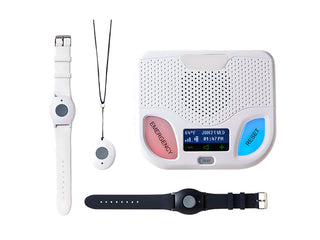Family members can rest easy knowing that medical alert systems can now be equipped with a GPS device that can pinpoint their loved one’s location for emergency services if needed, and family members can also track their loved one through a medical alert system with GPS , providing an additional level of comfort.
Falls can be scary – not only for the person who falls, but for concerned family members who aren’t always available for full-time caregiving. A fall could be caused by anything as simple as a person tripping over a rug or trying to move on their own into a bath lift, power chair or mobility scooter. They can also be caused by a health-related issue.
Choosing the best medical alert system for a loved one is important. When choosing a medical alert system, some features to consider include a medical alert system with fall detection and GPS. One question to ask is, if the user falls, will they be able to reach the button for help? Will they be able to describe their location accurately, or would they benefit from a medical alert system with GPS?






